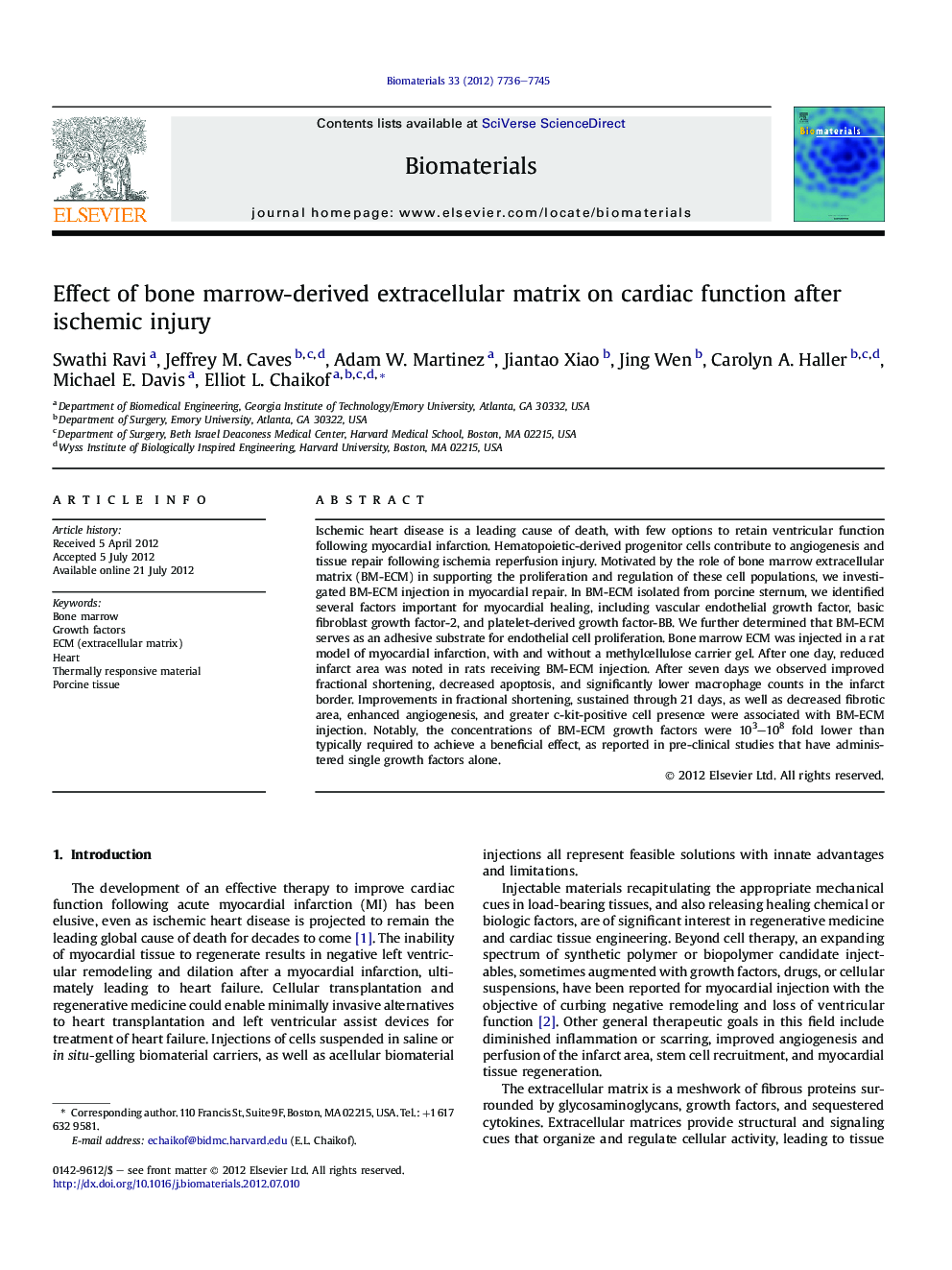| Article ID | Journal | Published Year | Pages | File Type |
|---|---|---|---|---|
| 6491 | Biomaterials | 2012 | 10 Pages |
Ischemic heart disease is a leading cause of death, with few options to retain ventricular function following myocardial infarction. Hematopoietic-derived progenitor cells contribute to angiogenesis and tissue repair following ischemia reperfusion injury. Motivated by the role of bone marrow extracellular matrix (BM-ECM) in supporting the proliferation and regulation of these cell populations, we investigated BM-ECM injection in myocardial repair. In BM-ECM isolated from porcine sternum, we identified several factors important for myocardial healing, including vascular endothelial growth factor, basic fibroblast growth factor-2, and platelet-derived growth factor-BB. We further determined that BM-ECM serves as an adhesive substrate for endothelial cell proliferation. Bone marrow ECM was injected in a rat model of myocardial infarction, with and without a methylcellulose carrier gel. After one day, reduced infarct area was noted in rats receiving BM-ECM injection. After seven days we observed improved fractional shortening, decreased apoptosis, and significantly lower macrophage counts in the infarct border. Improvements in fractional shortening, sustained through 21 days, as well as decreased fibrotic area, enhanced angiogenesis, and greater c-kit-positive cell presence were associated with BM-ECM injection. Notably, the concentrations of BM-ECM growth factors were 103–108 fold lower than typically required to achieve a beneficial effect, as reported in pre-clinical studies that have administered single growth factors alone.
